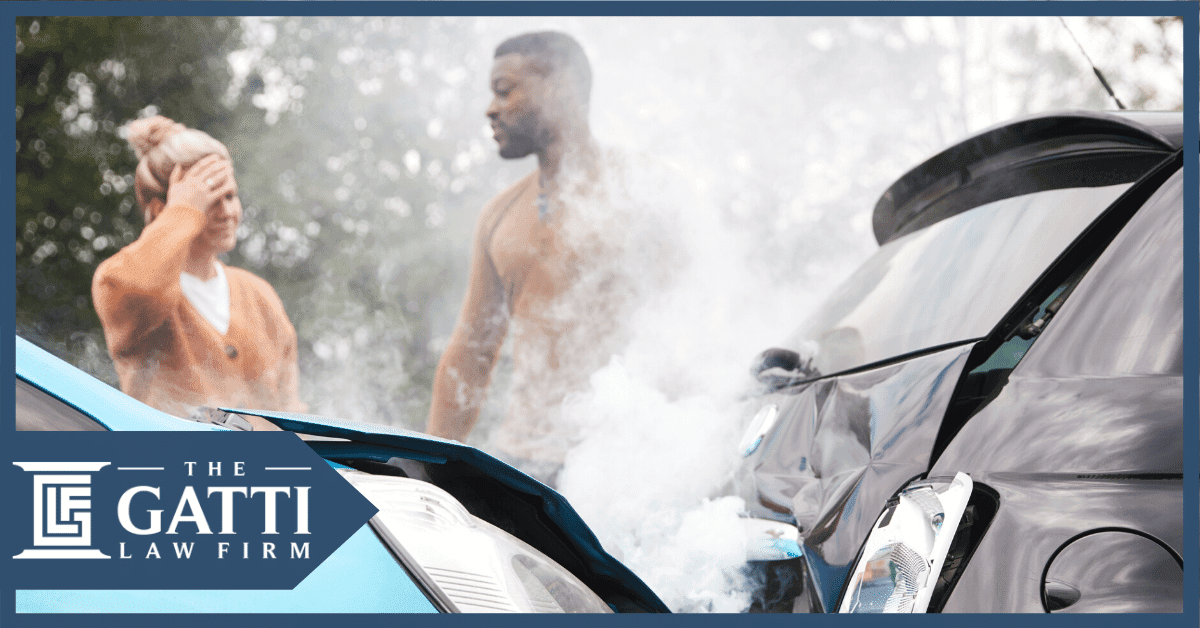It can be difficult to understand what steps you must take after an accident and what it means for your ability to pursue compensation. You’re confused about how you’ll pay for your damages or earn an income with a catastrophic injury.
Once the confusion has subsided, though, it’s vital to go through the claims-filing process. The legal matters can be extensive, and you must recognize what to expect.
There are many parts of the process of which you should know:
It’s vital to protect your rights from start to finish and having a lawyer on your side should be a top priority. Below, we’ll explain some of the things you should know about each of these steps, so you can pursue justice in the most effective manner possible.
If you suffer a personal injury due to someone else’s negligence, call our firm today at (503) 543-1114 to discuss your rights.
Filing a Claim
After the accident, you want to ensure you report the car accident to your insurance company. If the other driver is responsible, your insurance company will work with the other driver’s provider to work out the details of the claim. Your claim should include information such as:
- The other driver’s contact information
- The other driver’s license
- The other driver’s insurance information
- Photos of the scene of the accident, damages to all vehicles, and visible injuries
- Witness information
- Medical reports
Building a strong claim is vital to your success. Don’t wait to report the accident, though, as it could damage your ability to pursue compensation. While you may not feel as though you need a lawyer to file a claim, some problems may arise that may make it necessary to protect your rights.
Claim Denial
The insurance company is often looking out for their best interests—not the benefit of their policyholders. As such, if you’re looking to pursue compensation after a crash, you may run into a difficult situation in which the insurance company denies your claim.
The insurance company may use various tactics to deny your claim, including putting the fault on you. They may try to claim that you were the negligent party and you shouldn’t receive compensation. It’s critical to recognize when the insurance company wrongfully denies your claim.
An insurance company may also deny your claim by stating that you had a pre-existing injury or left out vital information from your claim. Having a lawyer can help you put together the necessary and accurate paperwork to build a strong claim.
Filing a Lawsuit
If the insurance company wrongfully denies your claim, you may need to go through the legal process to pursue the outcome you need. An attorney can help you file a lawsuit that puts you in the most favorable position possible.
Once you file the lawsuit, the defendant in the case (the negligent party and his or her insurance company) must receive notice of the lawsuit. In many situations, they’ll start building their defense. However, in other situations, they may try to settle with you.
If the insurance company thinks they have a strong enough case, they may try to file a motion to dismiss with the court.
Motion to Dismiss
A motion to dismiss may end the case immediately. The insurance company must prove without any doubt that their policyholder was not at fault for the accident. The court may decide to dismiss the claim with enough evidence to prove liability is not on their own policyholder.
If the judge denies the motion to dismiss, your case will likely go forward. If the insurance company believes that you have enough to pursue maximum compensation, they may try to offer you a settlement at this point. However, the motion to dismiss may mean the insurance company feels they have enough to get through the case without paying maximum compensation.
Discovery
The discovery phase is one of the most vital steps of the process. Discovery provides both sides the ability to prove liability, and it’s essential to have someone on your side who can bring forth the necessary evidence to position your case favorably.
The discovery process allows for the following:
- Request for admissions: Each side can ask carefully worded questions and request that the other party admit or deny facts regarding the car accident.
- Interrogatories: This phase allows for open-ended questions to gather as much information as possible. One party may ask you and your legal team to identify all possible evidence.
- Request for production: Both parties can ask the other to produce documents and tangible evidence that each side will use during the trial.
- Depositions: During this process, witnesses and the parties involved in the accident give live testimony to discuss the incident. A court reporter records the statements for necessary testimony at a later date.
Many cases end following the discovery phase because enough evidence is present to pursue compensation. During this time, the insurance company may approach you with a settlement offer.
Settlement
A settlement offer may seem like a great idea, but you should speak with an attorney before accepting or denying the offer. Far too often, insurance companies offer much less than you require because they know you’re in a vulnerable spot and any amount of money can help your situation.
If you accept the settlement, you forfeit your rights to pursue compensation through a lawsuit. You will no longer be able to recover additional money if you feel it’s owed to you. Instead, you should speak with your legal counsel to determine if it’s the right option for you or if you should pursue more.
Should you and your legal team determine that you can get more compensation by going through with a lawsuit, you can deny the settlement offer. Denying the settlement may prompt another offer from the insurance company, or you may continue going through with a trial.
Trial
A trial allows you to testify to a jury regarding the circumstances of your case. You can provide significant evidence to prove your case and pursue justice. During the trial, your lawyer will present the information to the court in hopes of having a jury award you a significant judgment.
Keep in mind, insurance companies are more likely to try and settle because they want to avoid the extensive costs of trial. However, you may pursue maximum compensation because your convincing a jury of your peers.
At The Gatti Law Firm, we want to help you through the process to protect your rights as strongly as possible. You shouldn’t have to endure the complex legal process because of someone else’s negligence. As such, our team goes the extra mile to pursue the outcome you need.
Our Salem car accident lawyers know what you’re going through and what you need to move forward. We’ll investigate the circumstances of your crash and work to build a strong case with a focus on your best interests. We’re not afraid of large insurance companies, and we’re completely prepared to go to trial when your rights need it most.
Call us today at (503) 543-1114 and speak with someone on our team in a free consultation. We’ll be there for you when you need us, going the extra mile when your rights depend on it.
About the Author

Attorney Jennifer Hunking is a partner of The Gatti Law Firm and is a devoted advocate for those who have suffered a personal injury. She practices in the field of automobile accidents. among other areas, to fight for those who are entitled to monetary damages. She is an Oregon injury attorney with a J.D. from Willamette University College of Law in 2010 and graduated Cum Laude.
 Get Free Case Evaluation
Get Free Case Evaluation

